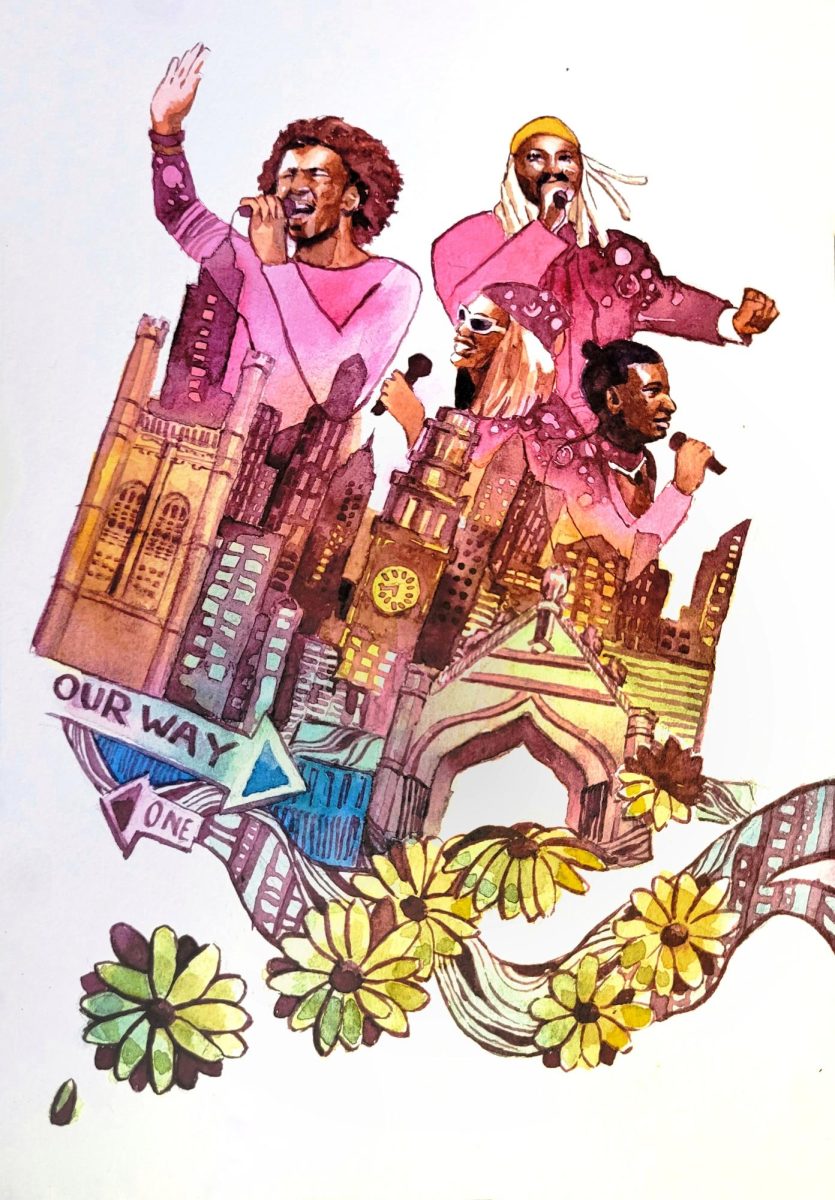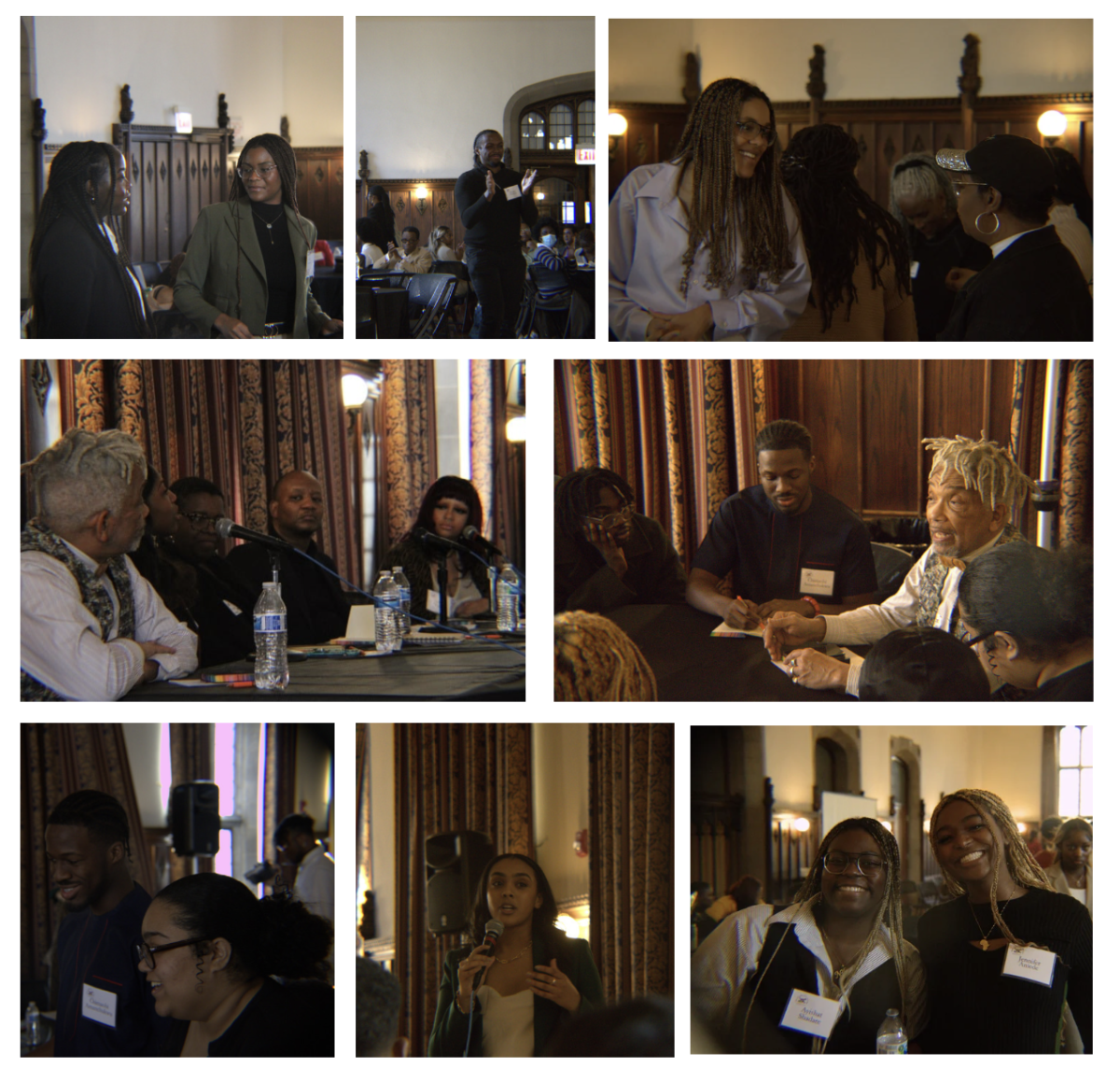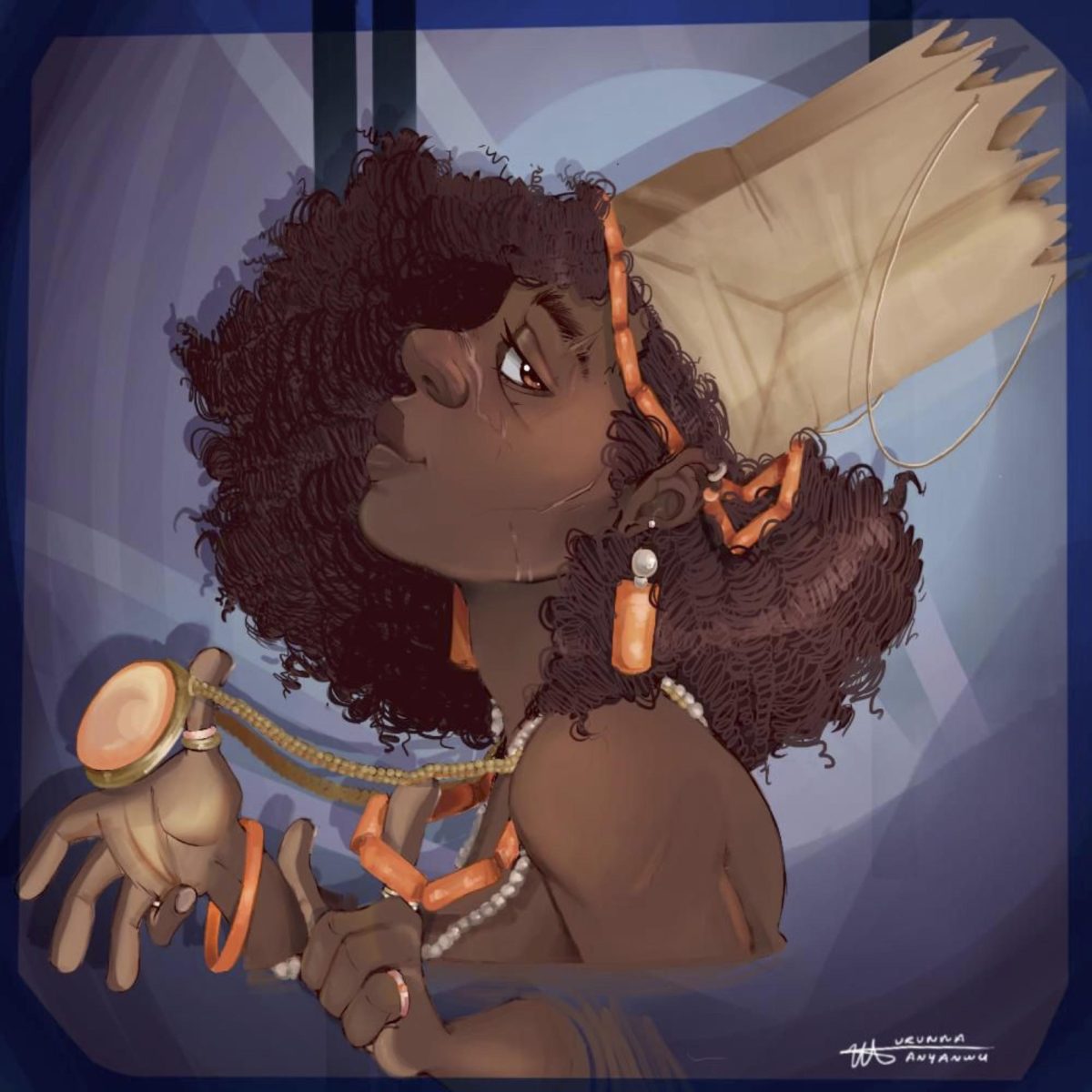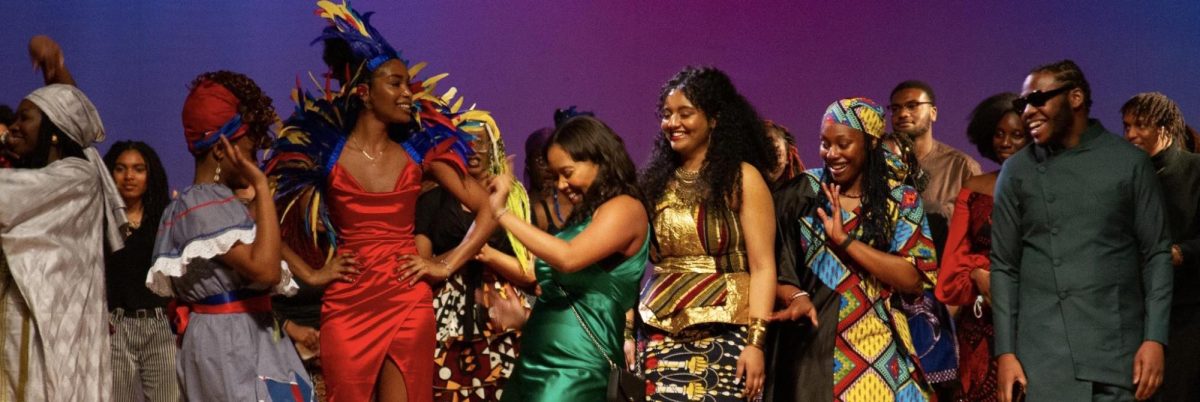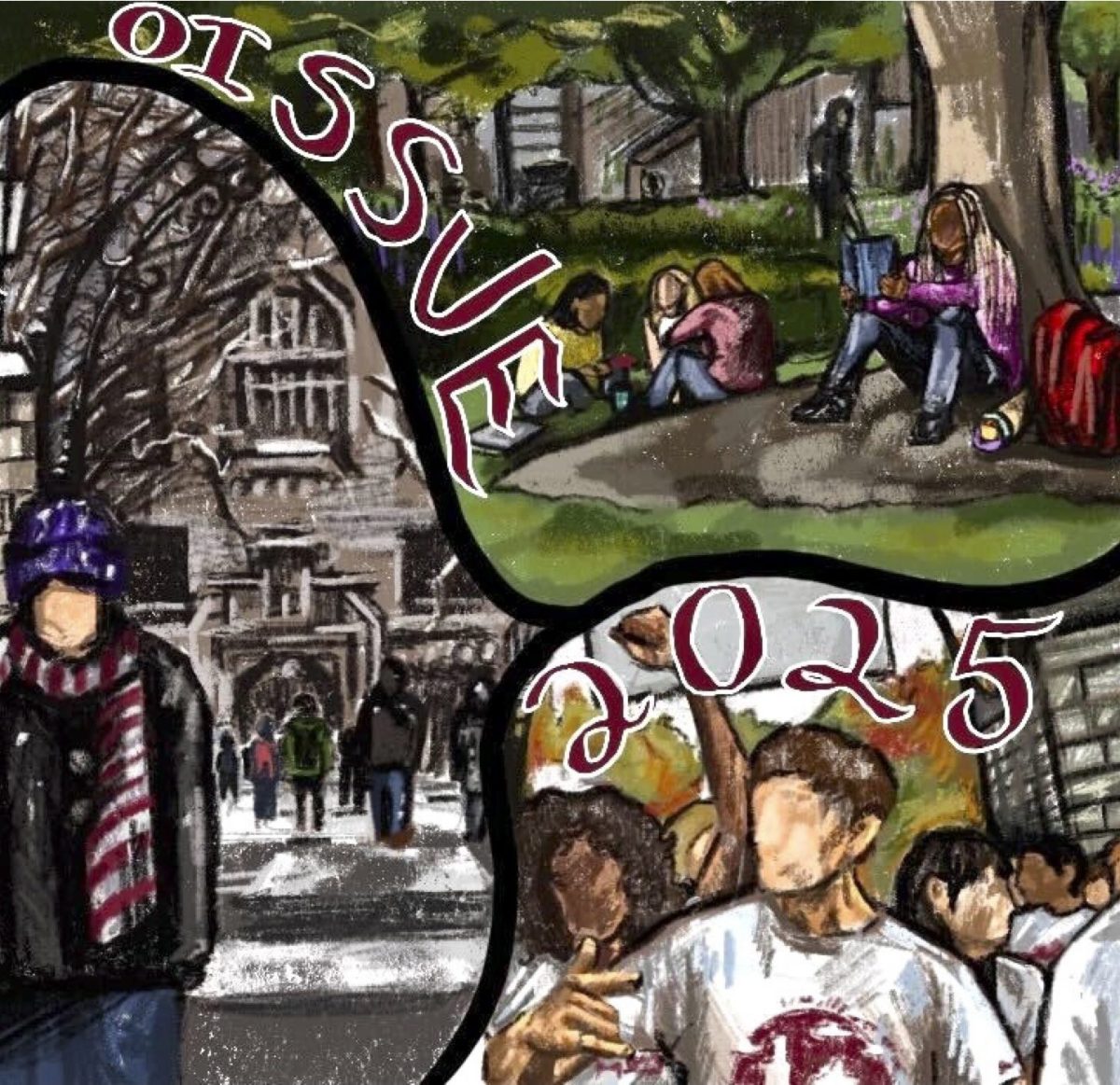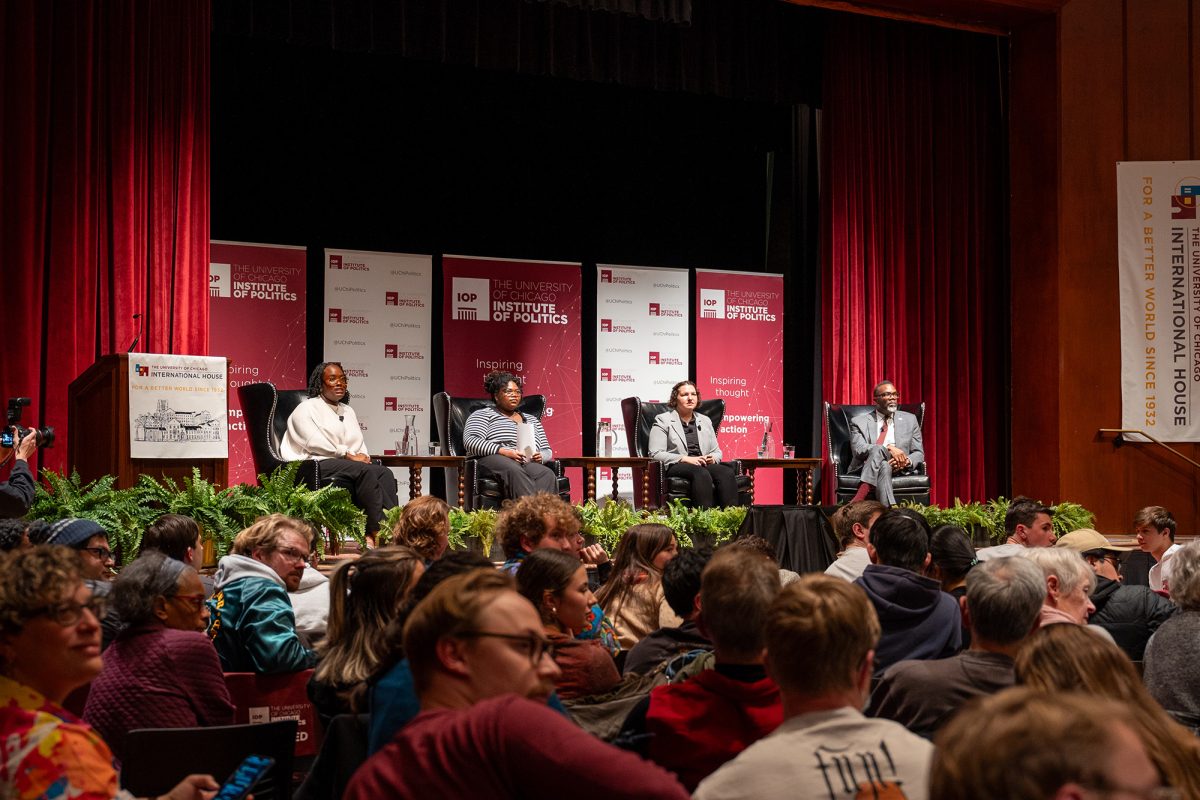One of my earliest memories is of my mother doing my hair every month in her bathroom mirror.
It was a day-long affair: I’d wake to a depression in the mattress as she sat beside me, and the soft, efficient hissing of the scissors as she cut my braids by the handful. She’d take out the rest in the middle of her bathroom with a rat tail comb that had probably seen generations of errant scalps before me, while I watched the dusty tresses litter the linoleum. She washed my hair with my neck craned over her sink and that same unforgiving comb, and when it came time to style it, she’d do so in rows spanning the length of my head and down my back.
In retrospect, there was something incredibly sacred about this ritual we shared. I’d never been too taken with religion, but even I could sense something divine and ineffable in my mother’s labors. In the present, I know that such is the love language of Black mothers, universal and precious. It was a language in which my mother was fluent, a language eloquent yet nonverbal, a language in which there are a million ways to say “I love you”, yet *this one*—whispered to me as she washed my hair, braided into my scalp as she styled it—was my favorite. In my mother’s arms, my cup runneth over.
Hortense J. Spillers, Black feminist scholar and professor of the African diaspora, delivers a stunning treatise on the complex gendering of the Black female body in “Mama’s Baby, Papa’s Maybe: An American Grammar Book” that comes to mind when I contemplate these memories. Specifically, she offers a notion of Black kinship that resonates strongly with my maternal musings: it is a notion of “powerful ties of sympathy that bind blood-relations in a network of feeling, of continuity.” Indeed, there are no memories in my mind consecrated with as much *feeling* as those of my mother, no network more unfaltering nor tie more powerful than that tender economy of care in which we participated, huddled together in her bathroom mirror. But Spillers also supplies an insidious caveat to this definition with which I am intimately acquainted: in Spillers’s estimation, inseparable from lovely feeling and glorious continuity is kinship’s susceptibility to invasion. Such an act can occur, in Spillers’s words, “at any given and arbitrary moment.” This, too, shall come to pass.
When I was nine years old, a white woman in church pinched the ends of my cornrows and said, “You’re so cute for a Black girl!” Her words seemed to swarm at me like locusts. They penetrated my veil of childhood naïveté to divulge something nasty, something that settled heavily under my skin and stayed there, thick and unrelenting. But I swallowed my misgivings and thanked her.
After that, I refused to let my mother do my hair.
In just a handful of seconds, Spillers’s words came to pass, and our delicate kinship was invaded. I wanted nothing to do with anything that would make me the subject of such comments. I wanted nothing to do with anything that would draw attention to my Blackness. I believed that if I could do my hair a certain way, talk a certain way, and look a certain way, I could achieve this. I was cruelly misled.
José Esteban Muñoz has ideas about this. In “Performing Disidentifications”, the introduction of his novel Disidentifications: Queers of Color and the Performance of Politics, he describes a performance put on by a Cuban- and Puerto Rican-American lesbian artist named Marga Gomez. In the play, Gomez lays bare the reality of being queer in contemporary Western society, a reality which is not divorcible from what Muñoz’s terms disidentification, a method for survival that marginal/ized subjects deploy in order to negotiate their place in a public sphere that “punishes the existence of subjects who do not conform.”
After that day, disidentification, for me, became both method and performance, and I was determined to learn every act. To borrow the words of Muñoz, I learned to disidentify. In public, I performed;, in private, I rehearsed. I was steadfast in these efforts. I learned how to look and act around my white peers in order to be more palatable to them. I learned how to negotiate my standing in their ranks from the vivacious—and often obnoxious—Black girl to a reserved and pleasant girl who only happened to be Black.
This soon became a recipe for boundary confusion. I began to feel split in half: half of me was mine, as she existed in her mother’s bathroom. She was Black, and unapologetically so, and her identity was intact and uncompromised—she belonged to no one but herself. The other half was a phantasm, a half-fledged thing that belonged to the ill-conceived compliments of white women, that swallowed ire to spit up watery thank-yous, that permed her hair to deflect scrutiny.
At nine, performance is a heavy cross to bear.
At nine, the Black girl experience is a heritage of heartache—we are constantly splitting ourselves in half. It’s more than being Black, and it’s more than being a girl. It’s the conundrum of being both. It’s being told since before you could read that Susan B. Anthony fought for your right to vote, then realizing that Susan B. Anthony couldn’t have cared less about your voting rights. It’s a drug store selling two shades of Black foundation and two shelves of white. It’s the fetishization of little Black girls, the Jezebel stereotype, fathers loving their Black sons but raising their Black daughters. It’s sacrificing half of yourself to a white woman’s beauty standards and thanking her for the privilege. Being a Black girl is a labor of love, and though that love lingers, it stings.
At 19, all the women in me are tired.
In the words of Spillers, “I describe a locus of confounded identities”.” I embody her vision of a “split subject,”, I assume Muñoz’s “disidentificatory desires.”. Sometimes I can convince myself that every microaggression I’ve ever experienced constituted a new split, a new fissure in my sense of self, and after so many severances, one day I’ll disappear. Other times I think that two halves don’t truly make a whole, and that this mind houses a lonely pair that has irrevocably grown apart. All the time I think I’m no longer a woman, but a chorus.
In the rare moments when academia is a reprieve, I’m comforted by the ideas of Muñoz and Spillers, among others, and the validation in knowing that my experiences aren’t singular. They point to a queer/feminist/pro-Black futurity that I crave in the abstract yet struggle to envision. Muñoz imagines a “queer life-world” in which the pains of queer existence are not censored or constrained. Spillers seeks a reconfiguration of African-American family relations that realizes the potentiality of Black motherhood, both symbolic and actual, and affords it an inviolable sanctity. But where do the estranged pieces of a split girl fit into such an idyll?
The world-weary woman in me wants to find a future where we have made our reparations for the past. She is wholly in agreement with Spillers, Muñoz, Crenshaw, Davis, and Butler…. But the child in me, sitting in front of her mother’s bathroom mirror, wants to exist in a future where the past never happened. She doesn’t want to hurt for the purpose of others’ learning. Forgiving is easy, but forgetting is harder, and I can’t begrudge her her memories.
I asked my mother about her take on all this, years later. It felt like a conversation long overdue. She asked if my two halves can’t be mutually inclusive. If not coexisting seamlessly, then perhaps reconciled to a time and place where they can live in relative peace. I mulled over her words for days before ever putting pen to paper, and when I did, I landed in a split woman’s version of a middle ground.
Disidentification is in itself a form of identification. Identity need not be static and still. Kinship is not preserved in rituals. I, it is reinforced by them, and found in the feeling and continuity that rituals engender. Feeling is inviolable; two is not a lonely number; and my mother will love me until there is no more hair left on my head to braid.
In a split woman’s version of a middle ground, I subsist. The world will not always be kind, least of all to us split women, but sometimes kinship intervenes. It gives us fulfillment, purpose, and mothers who do our hair in their bathroom mirrors. It’s given me a resilience I cherish but temper, a world-wonder I hope will only grow, and a sanguinity to tide me over. I’m bliss-bloated with the beauty of it, the beauty that kinship holds—the knowledge that I’mhalf-mine in some ways, but all-mine in others.



